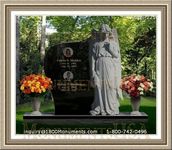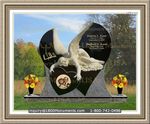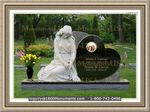|
Discovering ABC's Of A Jewish Funeral
A traditional Jewish funeral has certain elements to it. The main aim of these rituals is to honor the dead person, while being sensitive to his surviving family members. Generally, the specific customs carried out depends on the community the deceased person hailed from. But there are general customs that are observed at most burials.
Burial should take place as soon as possible. This is normally on the same day that the person has died. However, since it is not always possible to have all the family members around when the person dies, it may be necessary to delay the burial for sometime until all the mourners have arrived. It is up to the family to decide if they will delay the burial or not.
The casket is normally kept sealed at the memorial service. It is generally considered rude to look at someone who cannot look back at you. A plain and simple coffin is used. The coffin should be made from wood only as not metal parts are allowed, as metal does not decompose.
Preservation of the body through embalming is not allowed, unless demanded by local laws for health reasons. This is to allow the body to decompose naturally. If the family wishes, they can call a pious society of men and women who have devoted themselves to the task of cleaning and dressing dead bodies as required by tradition.
The burial ceremony does not take a long time. It can be completed in less than half an hour. Flowers are normally considered as frivolous adornments, so they are often avoided at burials. If you wish, you can choose to have a small floral tribute, as long as the officiant is not opposed to it. Mourners cannot talk to the attendees until the whole burial ceremony is over.
At the conclusion of a Jewish funeral, mourners pass through the middle of the parallel line formed by the attendees. The attendees recite consoling words to the mourners. To symbolically cleanse themselves, mourners can wash their hands when leaving the graveside.
|
|



























